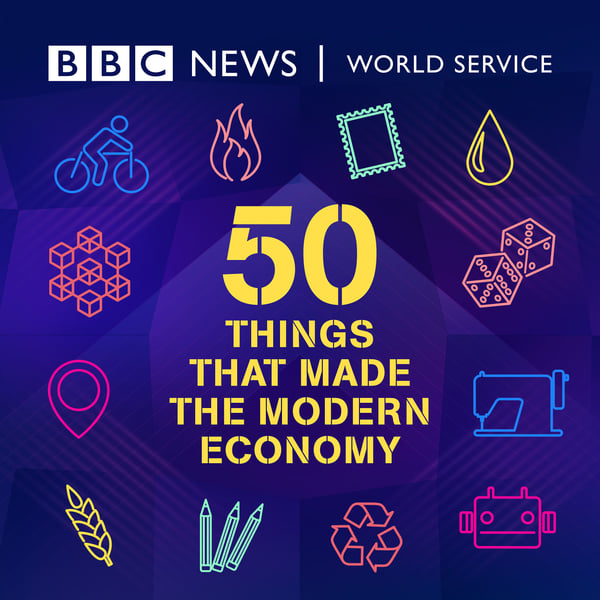Solar PV
50 Things That Made the Modern Economy
BBC
4.8 • 2.6K Ratings
🗓️ 19 August 2019
⏱️ 10 minutes
🧾️ Download transcript
Summary
Transcript
Click on a timestamp to play from that location
| 0:00.0 | 50 Things That Made The Modern Economy |
| 0:10.0 | With Tim Harford |
| 0:15.0 | Socrates believed that the ideal house should be warm in the winter and cool in the summer. |
| 0:21.0 | With clarity of thought like that, it's easy to see how the great philosopher got his reputation. |
| 0:28.0 | At the time, such a desire was easier to state than to achieve. |
| 0:33.0 | Yet many pre-modern civilizations designed buildings to capture sunlight from the low-hanging winter sun, |
| 0:40.0 | while maximising shade in the summer. |
| 0:43.0 | All very elegant. |
| 0:46.0 | But that's not the kind of solar power that will run a modern industrial economy. |
| 0:51.0 | And millennia went by without much progress. |
| 0:55.0 | A golden thread, a book published in 1980, celebrated clever uses of solar architecture and technology across the centuries, |
| 1:04.0 | and urged modern economies racked by the oil shocks of the 1970s to learn from the wisdom of the ancients. |
| 1:12.0 | For example, parabolic mirrors used in China 3000 years ago could focus the sun's rays to grill hot dogs. |
| 1:22.0 | Solar thermal systems would use winter sun to warm air or water that could reduce heating builds. |
| 1:29.0 | Such systems now meet about 1% of global energy demand for heating. |
| 1:35.0 | It's better than nothing but hardly a solar revolution. |
| 1:40.0 | A golden thread only briefly mentions what was in 1980 a niche technology. |
| 1:47.0 | The solar photovoltaic or PV cell, which uses sunlight to generate electricity. |
| 1:54.0 | The photovoltaic effect isn't new. |
| 1:57.0 | It was discovered in 1839 by Edmond Becadell, a French scientist. |
| 2:02.0 | In 1883, Charles Fritz, an American engineer, built the first solid-state photovoltaic cells, |
| 2:10.0 | and then the first rooftop solar array in New York City. |
... |
Please login to see the full transcript.
Disclaimer: The podcast and artwork embedded on this page are from BBC, and are the property of its owner and not affiliated with or endorsed by Tapesearch.
Generated transcripts are the property of BBC and are distributed freely under the Fair Use doctrine. Transcripts generated by Tapesearch are not guaranteed to be accurate.
Copyright © Tapesearch 2025.

